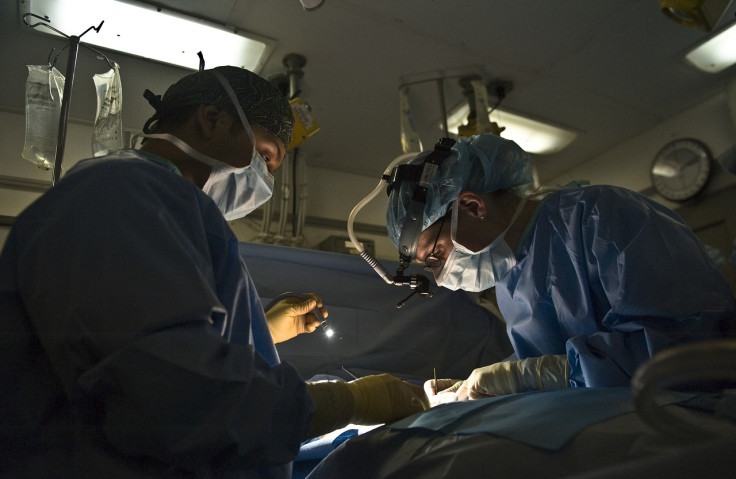What Is Rasmussen's Encephalitis? Doctors Disconnect Half Of 6-Year-Old's Brain To Prevent Progression Of Rare Disease

A 6-year-old California girl with Rasmussen's encephalitis, a rare neurological disorder, underwent a complex surgery to disconnect one half of her brain to control frequent seizures.
Rasmussen's encephalitis is a chronic neurological disease that typically affects one-half of the brain. The disease usually affects children under the age of 10 and comes with frequent and severe seizures, inflammation of the brain and mental deterioration. As the disease progresses, it can lead to loss of motor skills, speech and eventual paralysis on one side of the body.
Brianna Bodley underwent a hemispherotomy, a complex surgical procedure, at Loma Linda University Medical Center in California on Sept. 28.
Hemispherotomy is a treatment procedure for some children with Rasmussen's encephalitis to halt disease progression and stabilize seizures. The procedure works by disconnecting the healthy side of the brain from the damaged side. Studies show that around 77% of patients are seizure-free after hemispherotomy.
"Just disconnecting it is enough to stop the disease completely and essentially, potentially cure it," Dr. Aaron Robison, a pediatric neurosurgeon who performed the 10-hour-long procedure, told ABC 7.
Bodley was diagnosed with epilepsy in August last year following a series of nighttime seizures that left her hospitalized for five days. A month later, she was hospitalized again for over a week, and doctors diagnosed her with Rasmussen encephalitis.
She was on anti-seizure medications and steroids. As the disease kept progressing, the doctors decided to opt for surgery.
Earlier when antiseizure medications failed, treatment options involved removing the damaged part of the brain (hemispherectomy). However, doctors now recommend disconnecting the right and left sides of the brain from one another, allowing the healthy side to take over the functions of the damaged one.
Doctors expect the little girl to lead a full life, except for some issues with peripheral vision and fine motor skills on her left hand. "Brianna Bodley will still be the same person, even after disconnecting half her brain," Robison said.
Bodley was shifted out of the intensive care unit at the hospital.
"Right now it's all about pain management trying to help with her pain after surgery. This week sometime she will get transferred to inpatient rehab where she will do intense rehab to learn how to walk and use her arm, speech therapy, and more," an update shared on her GoFundMe page on Oct.4 read.



























